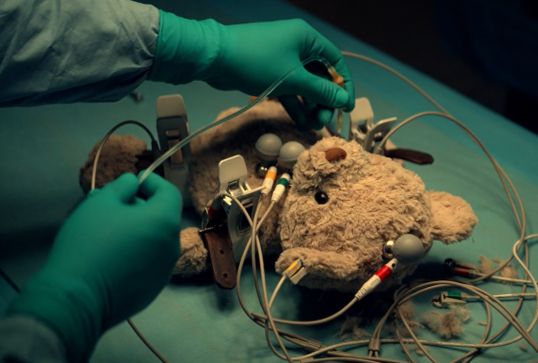
PETA's Shocking New Ad Campaign Puts a Teddy Bear in an Animal's Place

A bear is caged and brought to a laboratory to be strapped down, shaved, injected with chemicals, cut open, killed, and thrown away. But this time, it’s not a real bear; it’s a little girl’s lost teddy bear.
PETA and VMLY&R are launching a new campaign, led by a short film 'The Bear', to raise awareness and educate people on the realities of animal testing. By using a stuffed bear, the film shows the cruelty that animal testing actually entails – without making viewers shut off from a heavy topic.
The use of the teddy bear also ensures playability through social media 'graphic content' filters, allowing for social discussion and shareability around an important issue.
"The real-life ordeal that dogs, monkeys, and rats suffer through when cut open, poisoned, or burned and then killed in experiments is too graphic to watch and impossible to get onto social media," says PETA Vice President of Laboratory Investigations Alka Chandna, Ph.D. "PETA's new video allows the viewer to relate to the millions of animals who suffer in laboratories when there are superior, non-animal methods that could be used instead."
“We set out to create a thought-provoking film that would make people pause, question and think instead of feeling judged,” said Christian Carl, Executive Creative Director, VMLY&R. “The stuffed bear makes people pay attention and feel something, without shocking them with blood and guts. This inanimate object shows how these animals are treated - as if they are lifeless, unfeeling things.”
PETA aims to use the new campaign to push the National Institutes of Health (NIH) to stop awarding nearly half of its grants to animal experiments, which have been established as inapplicable to human beings. Some of this irrelevant 'research' includes injecting monkeys with cocaine, puncturing mice's intestines, and purposely breeding dogs to develop crippling canine muscular dystrophy. Ninety percent of animal studies fail to lead to treatments for humans and 95 percent of new drugs that test safe and effective in animal studies fail in human trials.













